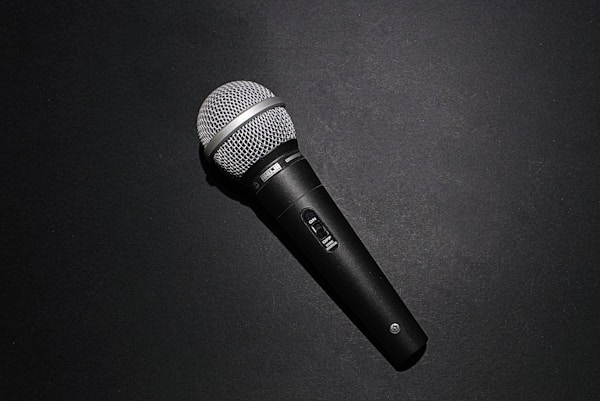When singing or speaking live, it’s important to have a good-quality microphone to ensure that the vocal performance sounds clear and professional. Choosing the right wireless microphone can be a daunting task, as there are various options available to suit different needs. Keep reading to learn more about how to choose the best microphone.
How do you choose a wireless microphone?

When it comes to selecting the best wireless microphone for a vocal performance, there are several factors to consider. The first is the type of microphone. There are two primary types of wireless microphones: dynamic and condenser. Dynamic microphones are best suited for live vocal performances, as they are designed to handle louder sound levels and higher frequencies. On the other hand, condenser microphones are better for recording and studio use, as they are more sensitive, providing a clearer sound.
The second factor to consider is the frequency range of the microphone. Different microphones are designed to pick up different frequencies, so you will want to ensure the microphone you choose can capture the range of sounds you need. For example, if you use the microphone for a live performance, you will want to select a wider frequency range.
The third factor is the microphone’s signal-to-noise ratio. This indicates how much of the signal sent to the microphone is heard by the person listening. The higher the signal-to-noise ratio, the clearer the sound will be. Therefore, choosing a microphone with a higher signal-to-noise ratio is essential if you are recording or performing in a noisy environment.
You also need to determine the type of microphone you need based on the kind of performance. Wireless microphones come in different models, such as handheld, headset, and lavalier. Handheld microphones are great for vocal performances, as they are easy to use and provide good sound quality. Headset microphones are ideal for spoken word performances, and they are comfortable to wear and provide superior sound quality. Lavalier microphones are great for presentations and interviews, as they offer good audio quality and are small and discreet.
Finally, you should also consider the battery life of the microphone. Batteries power wireless microphones, so you will want to ensure the microphone you choose has a long battery life. This is especially important for live performances since you don’t want to run out of battery during your performance.
What are the benefits of using a wireless microphone?

Using a wireless microphone offers a multitude of benefits for vocal performance. Wireless microphones allow the singer or speaker freedom of movement on stage, allowing them to interact with the audience and engage with the music more effectively. This freedom of movement can help to create a more engaging performance and help to draw the audience in. Additionally, a wireless microphone eliminates the need for a microphone cable, eliminating potential tripping hazards and freeing up the stage for other performers or instruments.
Wireless microphone systems also allow for greater flexibility when it comes to microphone placement, allowing performers to adjust the microphone position to best suit the performance. This is especially helpful for performers that may need to move around the stage or switch between singing and speaking during their performance. Wireless microphone systems often come with additional features such as adjustable frequency and range, allowing performers to fine-tune the sound to their needs.
Another benefit of using a wireless microphone is the improved sound quality. Sound engineers can adjust and fine-tune the sound levels with a wireless microphone without worrying about the sound being distorted by cable noise or interference. This assures vocal performers that their sound is heard clearly and accurately by their audience. Additionally, wireless microphones are often equipped with features such as noise reduction, which further ensures that their sound is of the highest quality. Wireless microphones are often more reliable than their wired counterparts. Because they don’t rely on cables, they are less likely to suffer from technical issues, such as faulty connections or interference.
Choosing the best wireless microphone for a vocal performance is a critical decision that can make or break the experience. With the right equipment, a vocal performance can be elevated to the next level.

